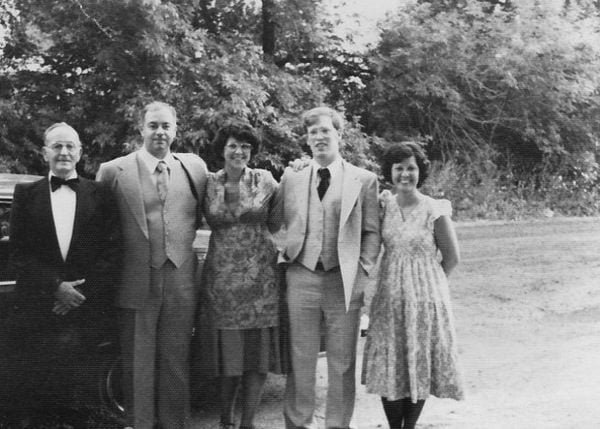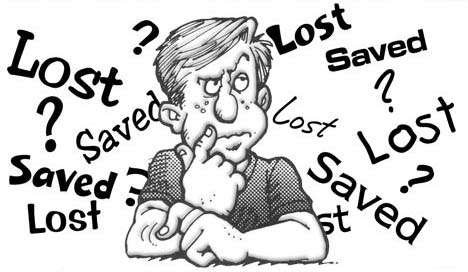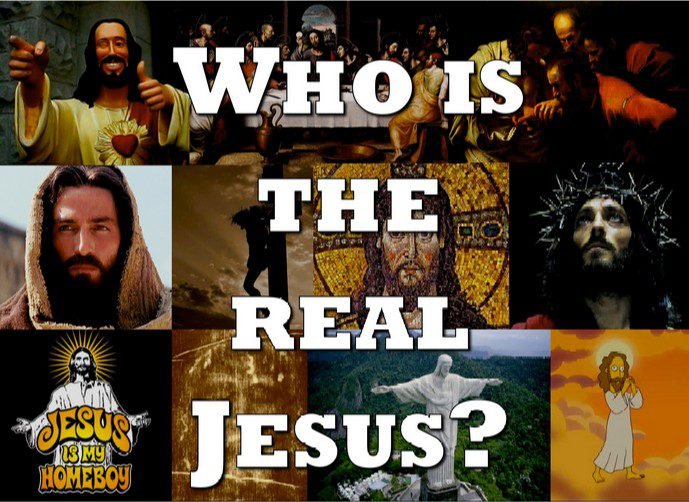Guest post by Ben Berwick. Ben blogs at Meerkat Musings.
Allow me to preface this post with the warning that this topic is a sensitive one. The depictions of violence are quite graphic, and quite brutal. Discussions of this nature can easily become heated, for we are talking about cherished beliefs and ideals. We are talking about historical figures of much notoriety.
Some background. This post grew out of discussions over at Silence of Mind. Whilst Silence of Mind himself has proven to be intractable and quite unreasonable, another participant, Citizen Tom, proved to be, if not agreeable to my position, cordial and civil in discussing it.
It is fair to say, judging from a brief read-through of Tom’s site, and he and I will likely not agree on many things. That is normal, that is life. It might be difficult to find common ground, or reach a consensus, but that does not make it impossible, and we all might learn something along the way. In the time since those early conversations with Tom, I have already had cause to reconsider a few things, and at the very least, thinking about the phrasing of my arguments.
With all of that out of the way, what is the purpose of this post? It concerns morality, how it is, heh, ‘divined’. It concerns how we view good, and evil, and in what name we act on what we see as good, and evil. I am rambling, for this post covers a lot of ground, and distilling it all into a single sentence is proving difficult.
A History of Bloodshed
SoM argued that atheists lack morality, for atheism is responsible for more deaths than any other form of ideology. He cited Stalin as an example. SoM would not be the first person to conflate atheism and communism, and therefore incorrectly blame atheism for Stalin’s murderous regime. His motive was to suggest that atheism is amoral, or even immoral. ‘Stalin was an atheist, Stalin was evil, therefore all atheists are evil’. SoM also sought to point out that Stalin and Mao (a follower of Marxist and communist ideals) proved atheism is more violent, by virtue of a greater death toll than religious ideology. Therefore, not only did he falsely equate atheism with communism to make atheists look bad, he proved ignorant of several important factors.
During the era of the Crusades (furious wars of religious ideology, between Christians and Muslims, pagans, and even other Christians), the weapons of war were nowhere near as sophisticated or powerful as they are today. There was a smaller population, and they lived in smaller cities and rural areas. It stands to reason that a holy war, waged with the weaponry of a modern military, among today’s densely-populated urban and suburban cities and towns, would be as devastating as any major war. SoM ignored this, and ignored the point about the Crusades.
Apologies to Tom, for it would feel like I am tackling SoM’s arguments all over again, and expecting Tom to respond to those points. There is some overlap, which I will come to.
Biblical Commands for Bloodshed
Christianity has a long and violent history (it’s not the only religion in this boat, but Christianity quickly became the central point of discussions in SoM’s post). Is this violence because of, or in spite of, what the Bible contains?
The Old Testament is filled with violent commands from God. The Bible is often held as the inerrant Word of God, and to some Christians, is to be taken literally as well. We are often told that we cannot judge God by human standards of morality. Is that because so many people would reject the ‘morality’ on display in passages like this, if read in isolation? Imagine you did not know of God, and for all you knew, the following were said by a human being:
1 Samuel 15:2-3 – This is what the Lord Almighty says: ‘I will punish the Amalekites for what they did to Israel when they waylaid them as they came up from Egypt. Now go, attack the Amalekites and totally destroy all that belongs to them. Do not spare them; put to death men and women, children and infants, cattle and sheep, camels and donkeys.’”
If we heard Numbers 18:2-3, and thought it were another human being who had spoke, what would we think? Bring your fellow Levites from your ancestral tribe to join you and assist you when you and your sons minister before the Tent of the Testimony. They are to be responsible to you and are to perform all the duties of the Tent, but they must not go near the furnishings of the sanctuary or the altar, or both they and you will die.
What would you think if you heard Isaiah 13:15-16 in isolation? This appears to relate to the treatment of prisoners of war. Whoever is captured will be thrust through; all who are caught will fall by the sword. Their infants will be dashed to pieces before their eyes; their houses will be looted and their wives ravished.
Numbers 31:14-18: Moses was angry with the officers of the army–the commanders of thousands and commanders of hundreds–who returned from the battle. “Have you allowed all the women to live?” he asked them. “They were the ones who followed Balaam’s advice and were the means of turning the Israelites away from the LORD in what happened at Peor, so that a plague struck the LORD’s people. Now kill all the boys. And kill every woman who has slept with a man, but save for yourselves every girl who has never slept with a man.
I think we can all generally agree that showing mercy to a vanquished enemy is a good quality. Sparing the lives of civilians is an imperative, and the treatment of women in this passage? It would be considered abhorrent to any good person.
Yet some Christians believe these actions are justifiable, and even good, when carried out at God’s command. These extremists are the ones who would have gleefully been at the frontlines of the Crusades, slaughtering others in the name of God. It is no wonder that there has been so much violence in the name of Christianity, when the Bible is full of it.
A Moral Compass
Bearing in mind the Biblical instructions for bloodshed, and how much conflict Christianity has been involved in throughout its history, is it right or fair to suggest that atheism is immoral?
Which is not to say that Christianity, or other religions, are automatically immoral. There are some terrifying, horrific events in religious texts, but there are good and kind notions to be found within them as well. Some people draw comfort from them, and who I am to say they shouldn’t? 1 Peter 4:8: Most important of all, continue to show deep love for each other, for love covers a multitude of sins. 1 Thessalonians 5:11: Therefore encourage one another to build each other up, just as in fact you are doing. 1 Corinthians 13:4-5: Love is patient, love is kind. It does not envy, it does not boast, it is not proud. It does not dishonor others, it is not self-seeking, it is not easily angered, it keeps no record of wrongs.
Humans can be tribal. We will gravitate towards like-minded groups, and sometimes, this can polarise us. Our instinctive, intrinsic need to create communities and belong is no bad trait, yet it means it is all too easy for us to see outsiders to our community as inferior or threatening. We feel the need to remove them as a danger, and that might involve blinding ourselves to how people are individuals. We are, as a species, very good at generalising, and often in a demonising sort of fashion. I dare say I have been guilty of this in the past, and I cannot say with certainty that I won’t unwittingly fall into that trap in the future.
One method of generalising is to point to an individual, or a small group within a community, and say ‘that person is immoral, therefore the entire community is immoral’. SoM appeared to operate with such a policy when he referenced Stalin, and the deaths incorrectly attributed to atheism. I’ve seen this sort of fallacy used elsewhere too, against atheism, and against religions. SoM and Tom both objected to a particular example of a Christian who committed some terrible atrocities, yet SoM in particular held up Stalin as an atheist and said ‘this is atheism and what it does’. More on that later.
Organised religion is often held up as a moral compass, with rule to live by, rules that civilisation needs. ‘Thou shall not kill’ is an obvious example of one of the Ten Commandments. However, do we need a commandment to tell us not to kill? Without it, would human beings lack the moral centre that makes killing abhorrent to most of us?
To put it another way, if the only reason you do not lie, cheat, steal or kill, is because a holy book told you not to do these things, how certain are you of your morality? If your faith in your beliefs is shaken or even destroyed, do you think you would become a murderer the day after?
There is another angle to consider. There are millions of atheists and agnostics in the world, hundreds of millions. Countries such as the Czech Republic have a high percentage (over 50%) of people who consider themselves irreligious. Sweden, Japan, and South Korea are in a similar situation. These countries are not morally bankrupt wastelands of corruption (in fact, Japan is one of the safest countries on earth). It would be too simplistic to say that atheism is the reason these countries tend to rate quite highly on quality of life indexes, because atheism is nothing more than the absence of religious belief. On the other hand, it does go to show that countries with large percentages of atheists are not consumed by what some Christians consider to be immorality. Nor are atheists demonstrably amoral.
Morality Always Comes From God?
One of the arguments Tom put forward is that atheists were imbued with Christian standards of morality, whether they know it or not, and whether they accept it or not. Tom regards this as the Truth. It is certainly an explanation for why hundreds of millions of atheists and agnostics are not slaughtering people left, right and centre, but it is also completely and utterly unprovable. I may well be imbued with morality via a supreme being, but how can I show this? I can’t. I have no means to verify this. It is a convenient form of answer, yet also meaningless. I can just as easily say my morality was granted to me by the pantheon of Norse Gods. Perhaps it was given to me by the spirits worshipped by Native Americans. Who can say for certain? Tom, and other Christians, ask me to take this on faith, but I deal with what is tangible.
There is evidence that our concept of morality is the result of evolution. I quote from Frontiers for Young Minds, and a post from Jean Decety and Jason M. Cowell:
How do we distinguish good from evil, right from wrong, just from unjust, and vice from virtue? An obvious answer is that we have learned to do so through socialization, that is, our behaviors were shaped from birth onward by our families, our preschools, and almost everything we contacted in our environments. Morality is an inner sense of rightness about our behavior and the behavior of others. How we feel, think, and act about the concepts of “good” and “bad” are all parts of our morality. For example, hitting another person for any reason is seen as bad, while sharing something we like with another child who is sad is considered good. Morality is so deeply rooted in the fabric of our everyday lives that it seems hard to imagine a society without any moral rules. Indeed, observations made by scientists who study different societies around the world have shown that, despite cultural and individual differences, all human beings have some sense of right and wrong.
When we use the word “morality” we are generally talking about ideas of justice, fairness and rights, and the rules we have about how people should treat one another. Consider the following: as a reward for finishing your homework, you have been given 10 marbles that you really like. You are then told about a poor child who would not be able to get any marbles, even though he did his homework too. However, you have the option to give some of your marbles to the poor child. What would you choose to do? Most children would naturally share some of their marbles with a poor child and would also be surprised if another child received more than 10 marbles after doing the same amount of homework! This shows that children understand both fairness and justice. As humans, when we consider how we or others should share something we have been given, we tend to take into account both how much of a reward someone deserves for the “work” they did and whether rewards are evenly split between individuals.
Interesting isn’t it? From a very young age, and across countries and cultures, we seem to instinctively understand what is fair and what is unjust. The theists will tell us this is because God filled our souls with these concepts. However, these concepts are found outside of humans. Animals, with no concept of God and lacking the capacity for the concept, have display indications of what we define as moral behaviours:
Natural observations of animals in the wild and research in laboratories show us that a number of “building blocks” of moral behavior can be found in animals. For instance, many animals exhibit behaviors that benefit other members of their species. Such prosocial behaviors refers to any behavior intended to benefit another individual. (meaning behaviors that are good for others), like helping each other and caring for offspring, have been seen in rodents and primates. Rats will help other distressed rats that have been soaked with water, and it will also choose to help a cage mate that is in distress before obtaining a food reward. Chimpanzees will help each other and share with each other, but only when they benefit from the sharing, as long as the costs are minimal and the needs of the other chimpanzees are clear. Chimpanzees also collaborate and form alliances in fights or when hunting. Capuchin monkeys have even been shown to react in a negative way when they see other monkeys being treated unfairly.
Babies show indications of morality:
When we see early signs of morality in young babies, this provides strong evidence for the evolutionary roots of morality, because babies have not yet had much time to be influenced by their environment. Psychologists who study human development have shown that human babies enter the world ready to pay attention and respond to social stimuli, such as voices and faces, and that babies begin forming social relationships during the first year of life. Young children provide comfort and assistance to both other children and adults in emotional distress. For instance, when they see their mothers in pain, 18-month-old toddlers show comforting behaviors (such as hugging, patting, and sharing toys). As infants develop and become more able to analyze what is going on around them, they even have the ability to recognize when a person in their environment is treating another person badly. At a young age, infants are quickly able to figure out whether the consequence of a behavior is good or bad, suggesting that their genes are involved and that experience and learning are not the only causes of moral development. At just 3 months of age, infants spend more time looking at a puppet character that has previously acted in a nice way than at one that acted in a negative way, suggesting that infants prefer those who “do good things.” By 6 months of age, this preference is stronger, with children not only looking more at helpful and nice puppet characters but also actually reaching for them. By 12 months of age, infants begin to understand the concept of fairness. When these infants witness cookies being shared, they expect an equal number of cookies to be given to all of the people involved.
So, it would seem that animals and very young children instinctively understand some concepts of sympathy, sharing, and fairness. Some Christians (not all) believe that babies are born sinful (co-incidentally, some Christians believe this justifies the slaughter of children in some of the Old Testament’s more barbaric verses). They believe young children are lacking in morality. To quote:
Parents understand that it doesn’t take long for a baby to being acting sinfully. They cry out of selfishness, they learn to say “no” to their parents, they hoard their toys and refuse to share.
Others might claim that babies are born without a sin nature in the womb, and remain sinless until they commit a sin after birth; but again, this is not what we find in the Bible.
David writes in Psalm 51, “I was brought forth in iniquity, and in sin did my mother conceive me.” Babies in their mother’s wombs are developing sin natures as they develop physically, and they commit sinful actions after birth.
This seems to jar with the study that demonstrates infants are capable of showing comfort to those in distress. Then again, our behaviour is part instinct, and part learned. Babies – especially new-borns (my daughter was a new-born once!) – need a lot of attention, they would not survive without it, so it stands to reason they will cry to get that attention. That isn’t ‘sinful’, that is a survival instinct. As they grow and develop, they learn from their parents. They take their cues from the people around them, and yes, they might sometimes misbehave, as they test the limits of what they can get away with, from time to time. They also combine their instinctive sense of right and wrong with what they learn from the people around them. All of this supports the evolution of morality, which comes from our nature as social animals, and the desire to build and protect communities as a result.
All that being said, can I say with certainty that there is no higher power, directing matters behind the scenes? The truth is, I don’t know. Whilst SoM has labelled me an atheist (it never occurred to him to ask where I actually stand), I consider myself an agnostic. I do not claim to know for sure that there is no supreme being of some kind. The universe is vast, there are plenty of mysterious, unsolved events in the world, and maybe there is something out there that’s created us, directed us, and quietly embedded us with what makes us ‘us’. Whether or not that ‘something’ is the Christian God, is another matter. It cannot be proven, or demonstrated, via empirical means. On the other hand, evidence exists to show that morality can be driven by evolution, and therefore the argument that atheists cannot have a moral compass is on shaky ground.
Conflating Atheism and Communism
A common theme of the discussions between myself, SoM and Tom, was to suggest that atheism and communism are one and the same, or at least, that communism is a product of atheism, and therefore atheism is responsible for the actions undertaken in the name of communism.
This is a fallacy. Atheism is merely the absence of belief. Atheism is not a political ideology, and is not responsible for the rise of Marxism and communism. Karl Marx’s dissatisfaction with society and his critical views on religion would have existed before the rise of Marxism, and existed afterwards, yet note that revolutionary political ideologies were not springing up because of this. Atheism existed before the rise of Marx’s radical agenda, and existed afterwards, and note that violence was not erupting because of it.
This brings me to a pertinent point. You do not hear of people killing (or for that matter, preaching) in the name of atheism. Atheism is not a form of political ideology and it is not (as some incorrectly argue) a religion. Atheism is only the absence of belief. In contrast, people kill in the name of their religion all the time. That isn’t to say that religion is the cause, but it is interesting that people like SoM (who admitted he would kill me if God told him to) are quick to suggest the absence of belief is why people kill, and then defend the presence of belief in killers, through all kinds of mental gymnastics.
Hitler’s Faith
All of this brings me to my next section. SoM had no problems with attacking an entire group of people over the actions of a handful of historical figures (and as we have established, he did so under misleading pretences). Perhaps unsurprisingly, he took a hypocritical issue with the mention of Hitler’s beliefs.
Adolf Hitler was raised as a Christian, and his book, Mein Kampf, referenced Christianity and his beliefs on numerous occasions. In documented discourse, Hitler’s religious views appear to be quite fluid, at times critical of Christianity, at times believing that true Christianity had been corrupted, and yet referring to atheists as ‘animals’. It would not be fair to suggest that Hitler = Christian and therefore all Christians = Hitler. It could be that Hitler was not a Christian. I am willing to modify (mollify?) my original position regarding this, as a result of further reading. However, Hitler was not an atheist either, contrary to any suggestion of such.
Conclusions
It would be far from fair to say that all Christians have the same, frightening, literal interpretation of the Bible (the interpretation that can find no wrong in God’s blood-soaked actions of the Old Testament). There are many Christians who quietly ignore the Old Testament completely. Whether that is the right thing for a Christian to do is not for me to say. However, Christianity as an organised religion has a lot of historical blood on its hands (as do a number of organised religions).
In terms of providing a moral way to live, is Christianity better than atheistic, humanist moral codes? Wrapped up in that question is another question, what is moral? We can delve into the morality of opposing same-sex marriage versus accepting it. We can consider the morality of women’s rights in a secular society, versus a religious one. The religious would argue there are objective standards for morality on these and other issues. The irreligious would argue that these are subjective, dependent upon the beliefs (or lack thereof) of individuals.
Is society better when religion has more influence? I don’t think so. I expect Tom would not agree, and as I said right at the start of this, that’s normal. I will also say that I have no problem with people wanting to have religion in their lives, but it should never be forced upon anyone. I’m British, but the principle of separation of Church and State in the US is an important bulwark against a theocratic regime, and theocracies tend to be quite oppressive. Choice matters, freedom matters.
To sum it all up, I would argue that atheists, as a group, do not lack morality.
Bruce Gerencser, 66, lives in rural Northwest Ohio with his wife of 45 years. He and his wife have six grown children and thirteen grandchildren. Bruce pastored Evangelical churches for twenty-five years in Ohio, Texas, and Michigan. Bruce left the ministry in 2005, and in 2008 he left Christianity. Bruce is now a humanist and an atheist.
Connect with me on social media:
Your comments are welcome and appreciated. All first-time comments are moderated. Please read the commenting rules before commenting.
You can email Bruce via the Contact Form.
Share This Post On Social Media:










